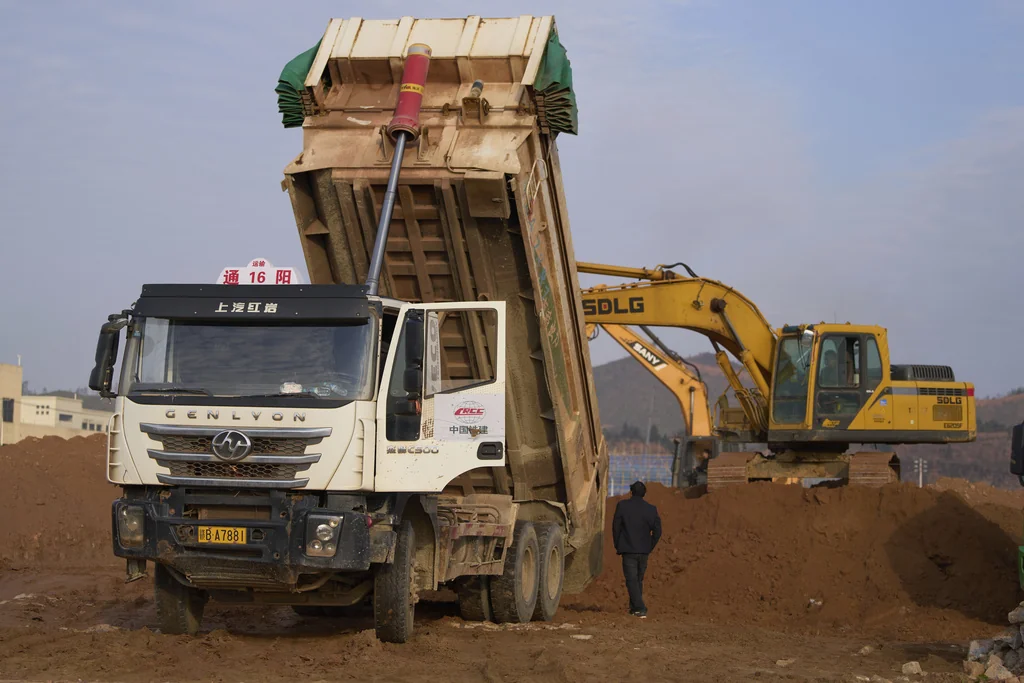China's Grip on Key Defense Materials Revealed

China's Control Over Critical Materials Threatens U.S. National Security
A recent report has highlighted the significant control that China holds over essential materials used in advanced battery technologies, which are crucial for various defense applications in the United States. The findings reveal that China dominates more than 80% of the critical materials required for these batteries, raising serious concerns about national security and economic stability.
The report, titled "Unplugging Beijing," was released by the Foundation for the Defense of Democracies. It outlines how China has managed to establish a stranglehold over all aspects of the battery supply chain. This dominance is not just an economic issue but also poses a significant threat to national security due to the vital role these batteries play in military technologies such as drones, handheld radios, autonomous submersibles, lasers, and directed energy weapons.
China’s control extends across the entire supply chain, from the upstream mining of minerals like lithium, cobalt, nickel, copper, manganese, and graphite, to the midstream construction of components such as cathodes and anodes, and the downstream assembly of batteries for cars, drones, electronics, military applications, and grid backup systems. The report suggests that China has achieved this through a combination of predatory practices, including leveraging non-market strategies to dominate supply chains, create resource dependencies, and undermine foreign competitors.
According to the report, China employs a "parasitic" economic model that involves price manipulation, subsidies, export dumping, intellectual property theft, knowledge transfers, monopolies, and aggressive vertical integration. This approach allows China to exploit free-market economies while breaking their rules, creating a situation where other nations are forced to comply with China's terms.
China recognized the strategic importance of critical minerals early on, investing $57 billion into mining and processing projects in Africa, Latin America, and other regions over the past two decades. Through initiatives like the Belt and Road Initiative, China has been able to take control of mining and production operations in mineral-rich countries such as the Democratic Republic of the Congo. This investment has enabled China to secure a significant share of the global market for key battery materials.
Currently, China produces: - 65% of the world's lithium - Over 85% of its battery-grade cobalt - 95% of its battery-grade graphite - 85% of its lithium-based anodes - 70% of its cathodes - 90% of its cathodes' materials - 97% of its anodes' materials
These statistics underscore the extent of China's dominance in the critical materials sector. The report proposes several strategies to counter China's influence, including diversifying essential supply lines to foster cooperation among free-market nations. This collaboration aims to create a unified international response to China's non-market practices and reduce dependency on its coercive economic strategies.
The recognition of national security vulnerabilities stemming from China's supply chain dominance has prompted actions by the U.S. government. For instance, President Donald Trump's initiative has involved striking deals with countries like Ukraine and the Democratic Republic of the Congo to secure access to critical minerals. These efforts have also supported U.S.-led peace initiatives between the DRC and Rwanda, with the latter sending armed forces into the country to acquire some of its vital minerals.
In conclusion, the report emphasizes the need for new guardrails, muscular statecraft, and a coordinated international response to address the challenges posed by China's economic practices. By building independent critical supply chains, free-market nations can work together to mitigate the risks associated with China's dominance and promote a more balanced global economic landscape.